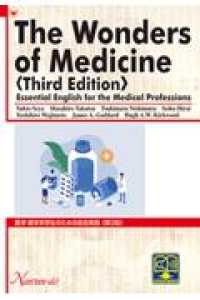- ホーム
- > 洋書
- > 英文書
- > Computer / Languages
Full Description
Transition from C++ to Rust with ease by learning how to write safe, modern systems code using familiar examples
Key Features
Compare Rust and C++ side by side to accelerate your Rust learning curve
Understand Rust's memory safety, concurrency, and project structure in practical terms
Build and convert real-world programs while adopting modern Rust idioms
Purchase of the print or Kindle book includes a free PDF eBook
Book DescriptionIf you're a C++ programmer curious about the rising popularity of Rust, this book will guide you through the transition with clarity and purpose. Written by a veteran C++ developer who embraced Rust to improve software quality and maintainability, this hands-on guide shows you how to apply your existing knowledge to build efficient and safe systems with Rust.
The first half of the book deep dives into Rust's history, safety guarantees, and development tooling. From there, the book compares Rust and C++ side by side, covering syntax, memory management, file I/O, object orientation, and data structures. With each chapter, you'll gain a practical understanding of Rust's unique approaches—like ownership and borrowing—and how they solve long-standing challenges in C++.
Later half of the book tackles performance optimization, multithreading, macros, and foreign function interfaces, culminating in a complete project where you reimplement a C++ program in Rust. By focusing on real-world code and familiar concepts, this book makes Rust accessible and actionable for experienced C++ developers.
By the end of Rust for C++ Developers, you'll be confident in your ability to read, write, and maintain production-grade Rust code, and you'll have a clear roadmap for integrating Rust into your future projects.What you will learn
Set up a Rust development environment with VS Code and Clippy
Understand Rust's syntax, memory model, and ownership rules
Translate C++ patterns into idiomatic Rust code
Manage Rust projects with Cargo and use community crates
Interface Rust with C and C++ using FFI and bindgen
Write concurrent and parallel code using safe Rust abstractions
Optimize performance through profiling and custom memory management
Build, test, and extend a real project from C++ to Rust
Who this book is forProfessional C++ developers are the primary audience for this book—especially those looking to improve software safety, maintainability, and concurrency handling in their systems code. It's also ideal for systems programmers and engineers in fields like game development, embedded systems, and high-performance computing who are curious about Rust.
Readers should be comfortable with C++ concepts such as pointers, memory allocation, and STL(Standard Template Library) containers. Familiarity with topics like concurrency, atomics, and debugging is beneficial but not required.
Contents
Table of Contents
Why Choose Rust?
Working with Rust Syntax
The Rust Safety Model
Managing Rust Projects with Cargo
Data Structures
Reading and Writing Files
Understanding Iterators
Object Orientation
Object Orientation Optimization
Working with C++ in Rust
Multithreading in Rust
Hygienic Macros
Putting it All Together
Appendix- Setting up a Development Environment








